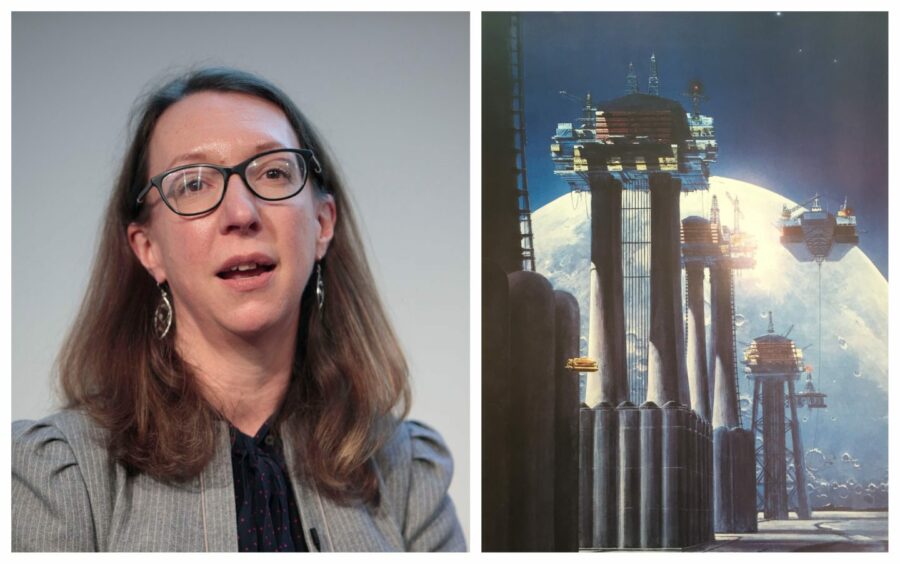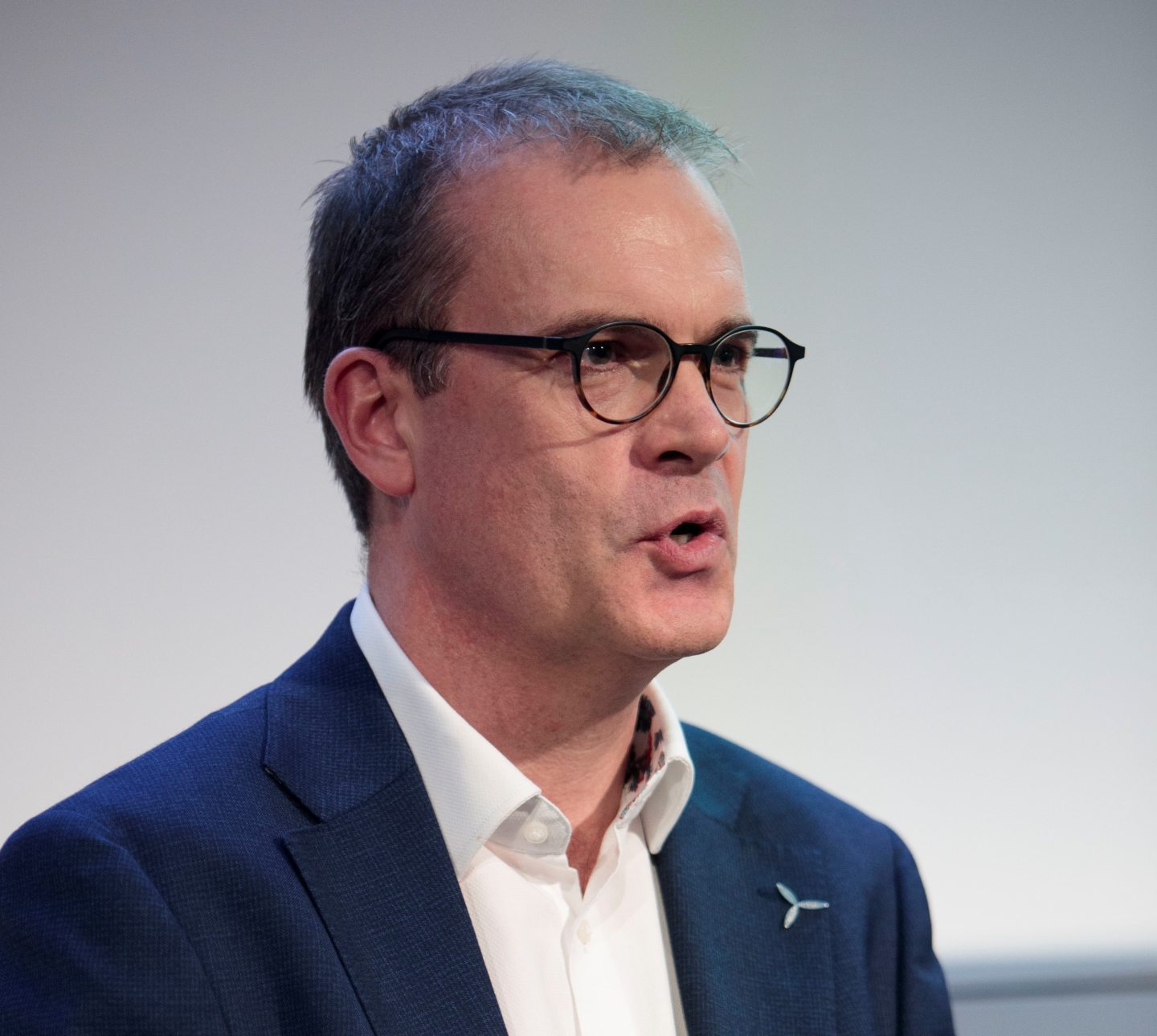
Installing North Sea assets was once compared to the technical challenge of the moon landings – and a Shell boss has said industry efforts need to go even further when it comes to decarbonisation.
Bethan Vasey, energy transition manager at Shell, and Richard Sandford, the newly-installed UK wind vice president for BP, spoke at the AREG (Aberdeen Renewable Energy Group) Energy Futures Conference on Tuesday.
They highlighted the global importance of Aberdeen in transitioning their businesses – and the scale of the challenge ahead.
Ms Vasey said: “One thing to add and emphasise; what happens in Aberdeen and what we do here matters.
“It matters to Aberdeen and the north-east, but it matters globally.
“We’re role modelling, it’s the same within Shell, I am talking to many countries around the world to help them with their energy strategy, what it means for them, how can they make the most out of that.
“So what we do here matters.”
Ms Vasey spoke about the initial North Sea oil boom and the “pioneering” spirit of that, which was compared in Shell advertising to a similar engineering challenge to the Apollo moon landings.

She said the industry needs to “do it 10 times over” to address the climate change challenge.
“That’s how it felt at the time; pioneering.
“The equivalent of that oil and gas development felt like going into space. So we can do it as a region, and Shell’s played its role in that. But we need to do it again, and we probably need to do it 10 times over at least in order to address this huge challenge of climate change.”
Mr Sandford joined BP four months ago to head up its UK offshore wind efforts.
He underlined that, even as renewables grow in prominence for the energy major BP, it still sees a continued role for oil and gas.
Both firms are subject to industry targets to decarbonise operational emissions from North Sea installations by 50% by 2030, under the North Sea Transition Deal signed with government.
He said: “The North Sea is without doubt an attractive market when it comes to oil and gas. An incredibly strong safety record, a progressive regulator. It’s a decent environment to be working in.
“As a company, we’re doing all we can to reduce emissions from our production business. We’re reducing our production globally, we have targets.
“We’re going to reduce our global production by 40% by 2030, but that doesn’t mean we won’t continue to invest in oil and gas, because it is part of energy security.
“The other side of that is doing everything we can to speed up deployment of clean energy; everything we can to deploy offshore wind, other renewables technologies as quickly and efficiently as we can so we can start to displace the oil and gas side.
“We’ve got targets to become carbon neutral by 2050 or sooner, and we’re well on that journey to reducing emissions, so I think we’ve got a huge role, which is part of the reason I joined by – to be part of it.”
Recommended for you


 © Supplied by AREG
© Supplied by AREG